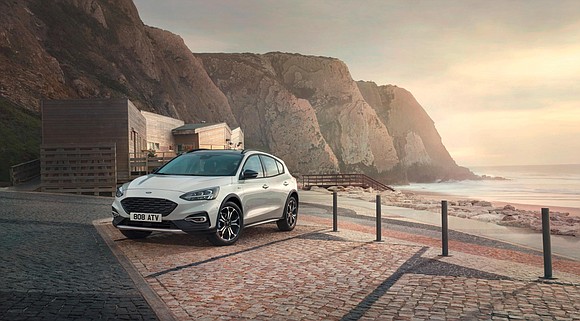Ford's decision to drop sedans and hatchbacks makes sense. Here's why
CNN/Stylemagazine.com Newswire | 4/26/2018, 1:34 p.m.
Peter Valdes-Dapena
(CNN Money) -- You might be shocked by Ford's decision to drop traditional cars from its line-up in favor of crossovers and SUVs. Haven't we seen this movie before and didn't it end badly?
Ford, along with GM and Chrysler, made huge profits from selling SUVs earlier in this century. Then gas prices spiked in 2008 and wreaked havoc on the American auto industry as buyers suddenly pivoted to more fuel efficient cars.
Fast forward to 2018. Once again, gas prices are rising. And once again, consumers are in love with SUVs. In fact, buyers have turned toward SUVs so much that Ford is about to drop all but two cars, in the traditional sense of sedans and hatchbacks, from dealerships in North America.
Uh-oh.
So far, the plot-line may sound the same but the characters are very different. The SUVs Ford is selling now aren't the fuel-swilling beasts of a decade ago. For instance, today's Ford Escape SUV gets 12% better fuel economy than a four-cylinder Fusion sedan in 2008. Ford's new EcoSport SUV gets the same overall mileage -- actually, better in city driving -- than the Ford Focus compact car of just a decade ago.
And many of the SUVs Ford plans to make aren't what most people would recognize as SUVs, anyway.
In its announcement, Ford talked about "new 'white space' vehicle silhouettes that combine the best attributes of cars and utilities, such as higher ride height, space and versatility."
I expect "crossover SUVs" that are more like cars with a pinch of SUV spice to boost their appeal.
At a glance, Ford's upcoming Focus Active looks like a hatchback car. But Ford is calling it a crossover.
Other carmakers are exploring this white space idea. GM's new Buick Regal TourX is a wagon with all-wheel-drive and raised suspension. Subaru has been in this white space for many years with the Outback, another slightly raised wagon.
What has changed in the past decade has been engineering, of course, with more fuel-efficient engines and lighter weight bodies. But design and marketing have changed, too, as carmakers have honed in what people really find appealing about SUVs. They've realized customers don't really need, or even mostly want, hulking trucks that can tow yachts and cross canyons.
They want to ride up high with a sense of adventure. Even if they never leave the pavement, they want to feel like they could. And they want space for all the stuff they buy at Costco. But they also want good fuel economy and they don't want something that drives like a truck.
With some engineering and design ingenuity, Ford and other automakers have given customers what they want. Now Ford is just giving them less of what they don't want.




